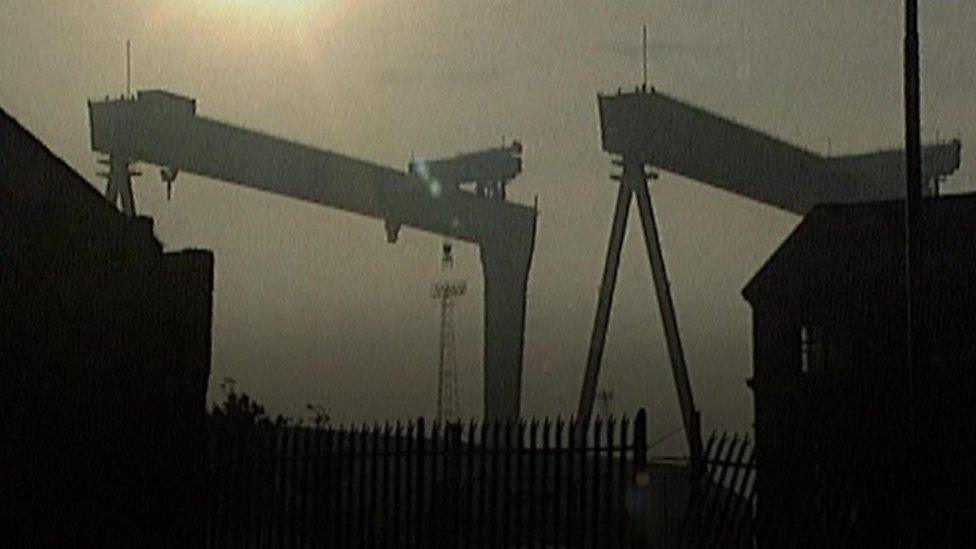Harland and Wolff: Voices of the workers at risk
- Published
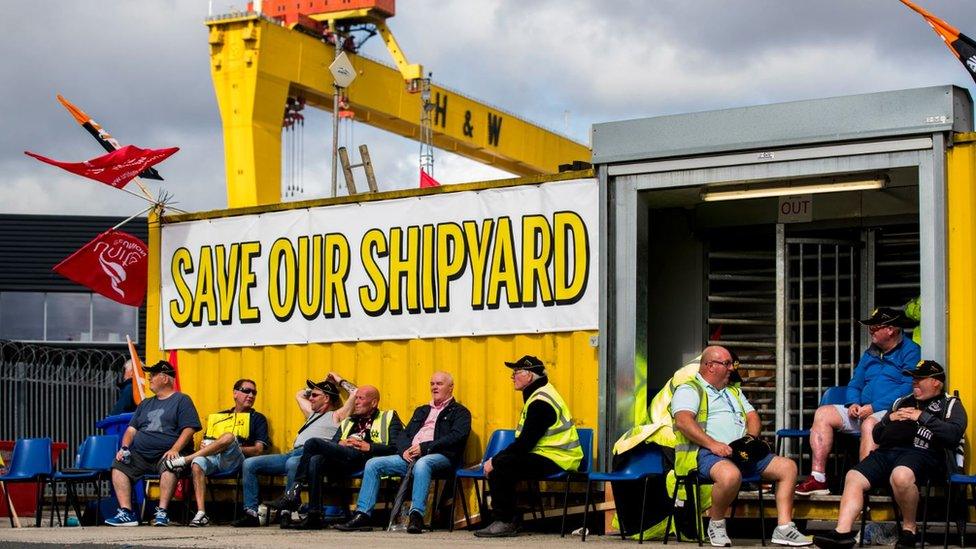
Some 120 jobs are at risk at Harland and Wolff, which once employed more than 30,000 people
Once Belfast's industrial powerhouse, the Harland and Wolff shipyard has entered administration, putting the jobs of its last 120 workers at risk.
Over the past week, employees and trade unions have been protesting outside the yard's gates, calling for the firm to be renationalised.
BBC News NI speaks to some of the people whose jobs and future careers are at risk.

Tommy Stewart
"I honestly don't know where the years have gone - they have flown past," said 67-year-old Tommy.
He has been employed at Harland and Wolff for more than 30 years, having started working for the Harbours Commissioners in 1974 before moving to the shipyard.
Harland and Wolff has been a "unique place to work", he said, and he has made friends for life there.
"In here, you wouldn't want to do anything really wrong because you'll get a nickname for it.
"You had to learn to have a thick skin but they are good lads."
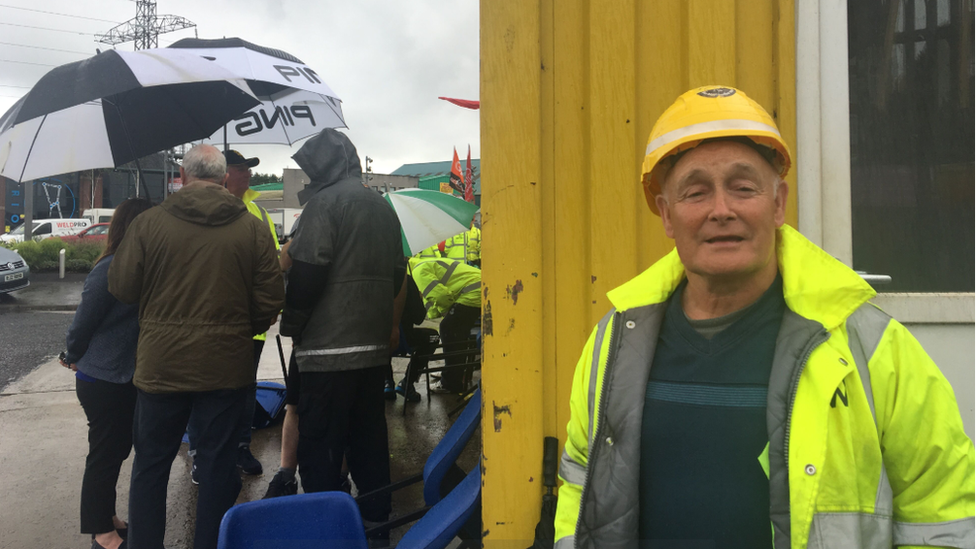
Standing on the picket line, Tommy Stewart is "loyal" to Harland and Wolff
He believes other companies in Belfast could suffer without Harland and Wolff.
"There's a knock-on effect - we have local firms here... that provide us with parts so it will be a snowball effect," he explained.
"We need to get production going again in this country - technology is good but we need to build our engineering sectors back up."
Tommy said that he will be outside the gates of Harland and Wolff until "the bitter end".
"We never thought we would get this low but we have been loyal to Harland and Wolff all our lives."

Robert Childs
Harland and Wolff is "in my blood", said 57-year-old Robert.
His great-grandfather William started in the shipyard in the 19th Century and his grandfather, also called William, joined too.
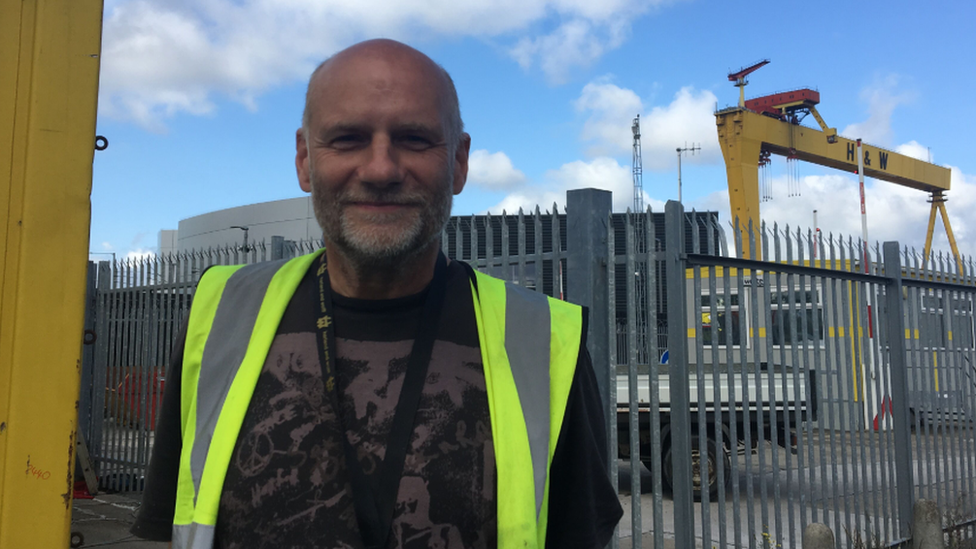
Robert Childs has worked in the shipyard for 40 years
Robert's father Bobby soon followed and, inspired by those before him, Robert was working in the shipyard aged 17.
Robert's mother worked in the Harland and Wolff canteen and his eldest son did a stint there so the Childs family is certainly well known.
"I'm just an ordinary working-class man from east Belfast and as somebody once said: 'Born in Belfast, made in Harland and Wolff.'"
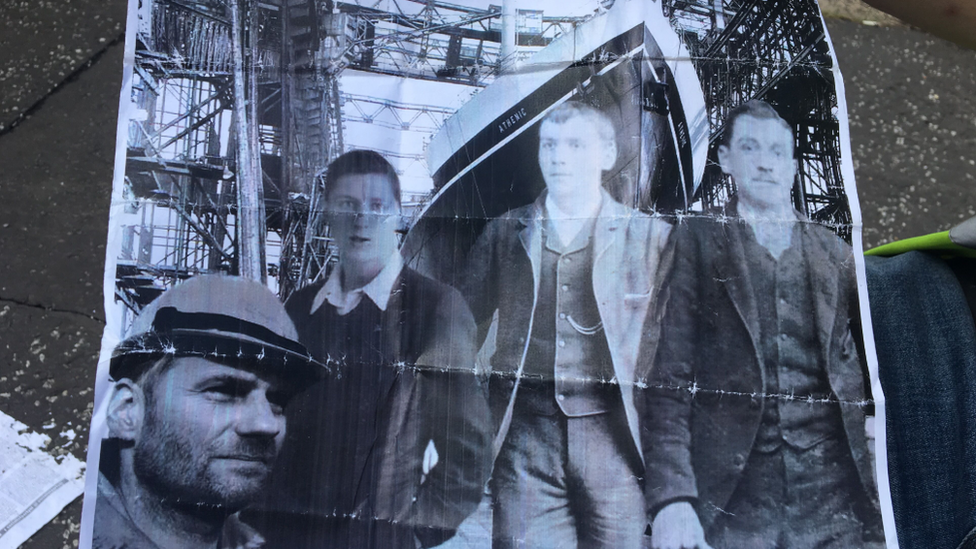
Shipbuilding runs in the Childs family - Robert (left) is pictured with his father Bobby (second left), his grandfather William (second right) and his great-grandfather William (right)
Robert explained that working at the yard meant "you didn't feel like you were coming into work - you were just coming into your other family".
Like Tommy, Robert said workers needed to be thick-skinned to work there and everybody had a nickname.
He hopes the company will be renationalised and said if it is lost to the city it will be "like a family member passing away".

Karen Creighton
Four years ago, Karen jumped at the opportunity to work as a trainee accountant at the shipyard.
"Harland and Wolff is just the heart of Belfast and when I saw the advert for the job I got so excited," she said.
"My grandfather worked in this shipyard all his life too.
"You see the cranes everywhere when you are in Belfast and every picture you look at, they are there."
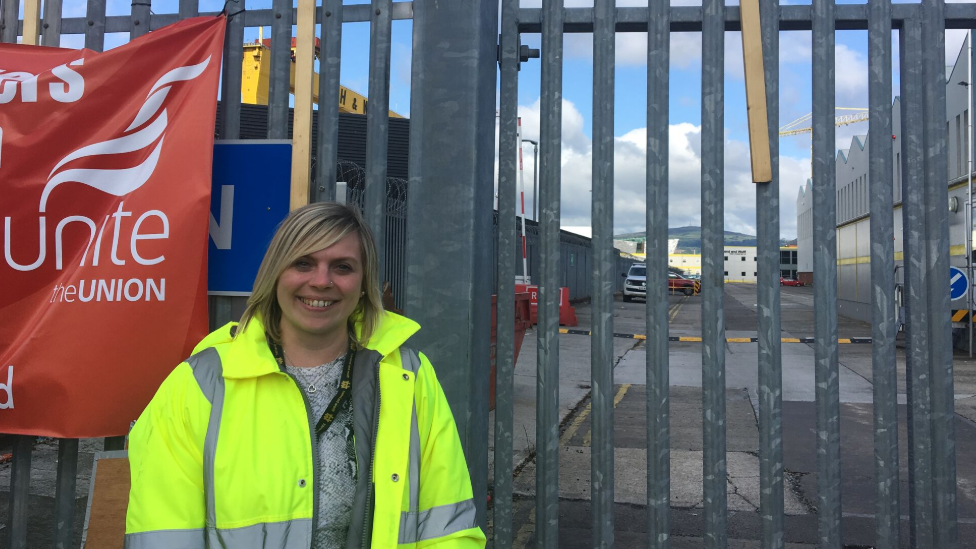
A chance to work in the offices at Harland and Wolff was exciting for Karen Creighton
The news of Harland and Wolff going into administration "doesn't even seem real", she said.
But she remains hopeful and wants the yard to "stay open and for local people to keep working here".
"It's not just us that benefit from working here - it's all the local communities."

Eddie Corbett
Having started at the yard when he was 17 years old, Eddie has worked in numerous roles, including ship repairs and engineering.
"You don't get that sort of education anymore," he said.
Speaking about the relationship between the staff, he said: "Other workers must come in and listen to us and think: 'Is this going to go to blows soon?'
"But it was always affectionate and we always got on."
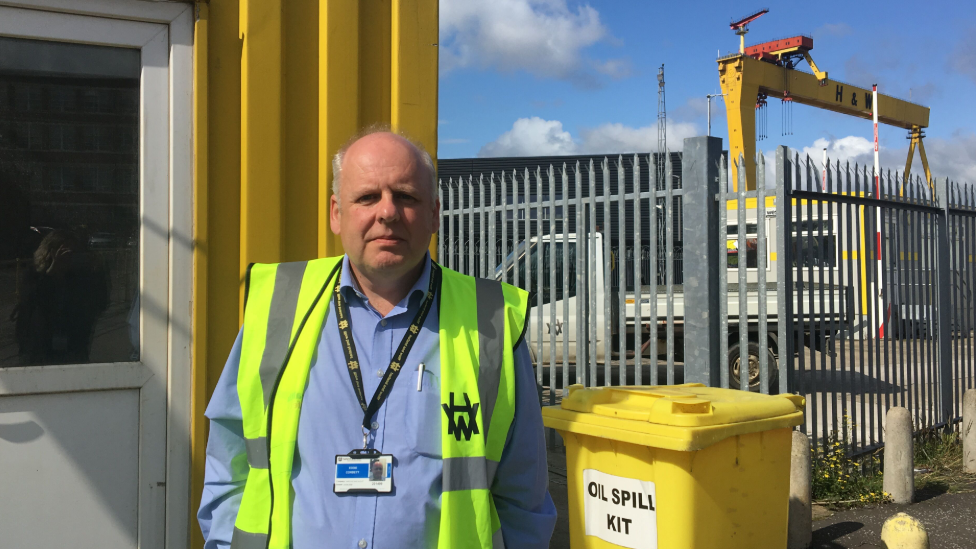
Eddie Corbett's career at Harland and Wolff has spanned 37 years
He said that as the apprentice was often the youngest worker, they were teased and told to go to the store to ask for a "long weight".
But beneath it all, Eddie believes Harland and Wolff was one of the best shipyards in the world.
"There was banter but underlying that the ships that were built here in terms of quality were really second to none.
"There is such a craftsmanship and a pride in our work - we do the job the right way."
- Published6 August 2019
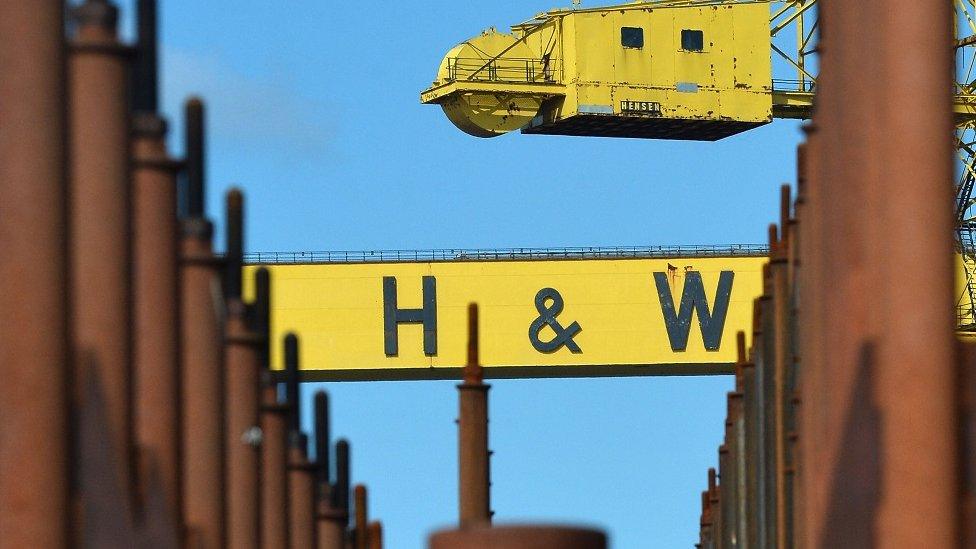
- Published28 September 2024
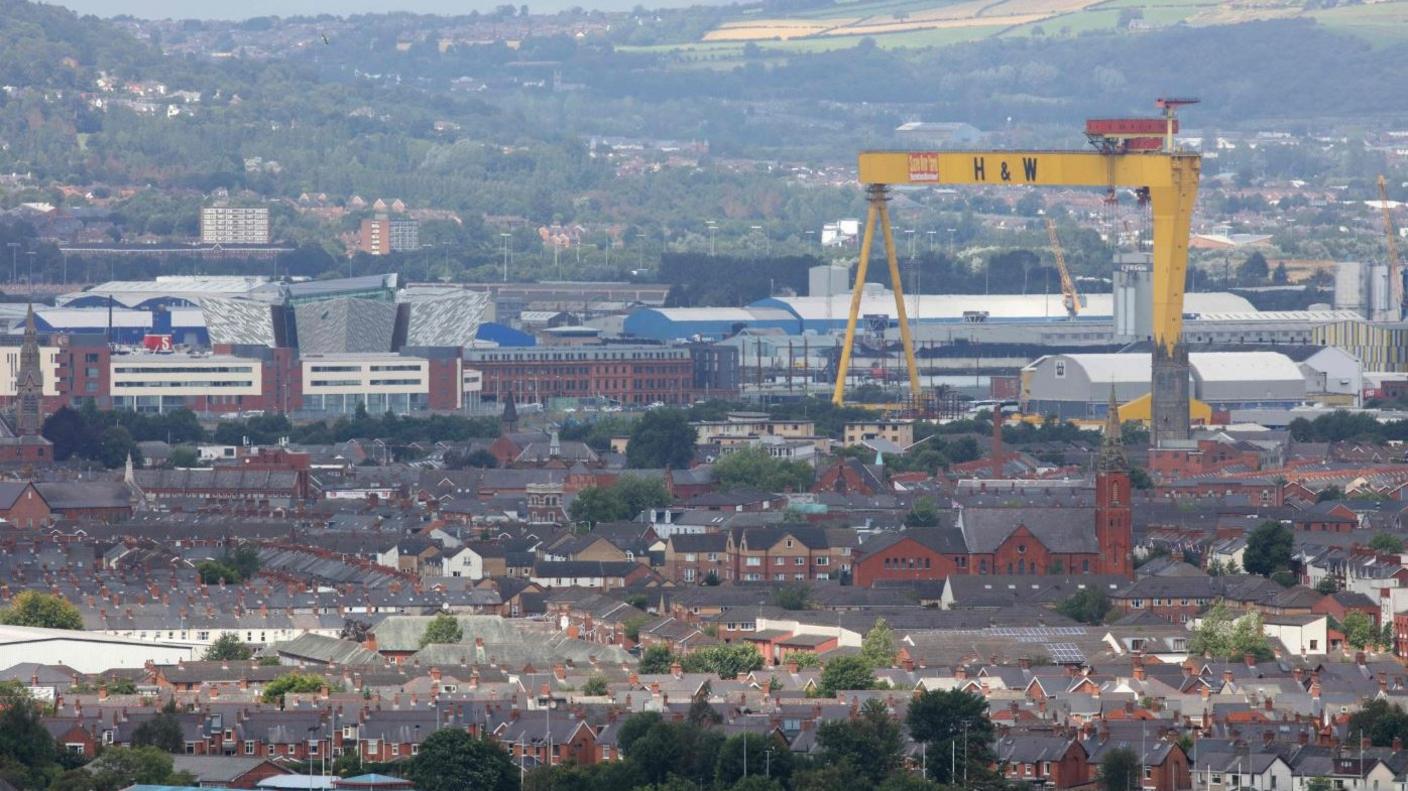
- Published5 August 2019
